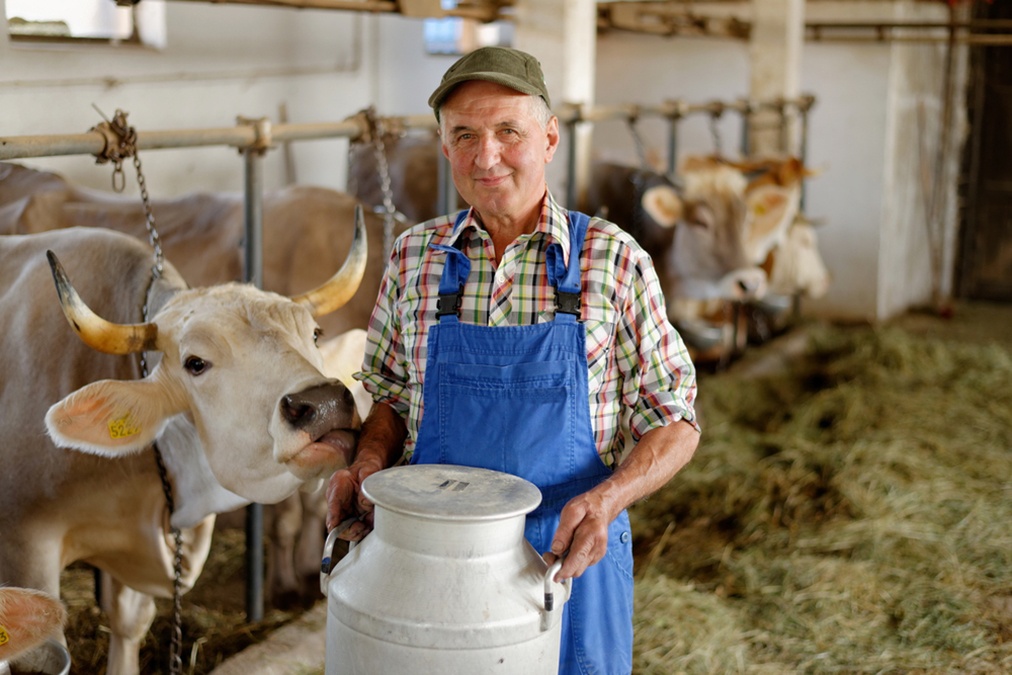 A new study from the University of Central Florida published in the journal Frontiers in Cellular and Infection Microbiology reveals amazing news for arthritis patients.
A new study from the University of Central Florida published in the journal Frontiers in Cellular and Infection Microbiology reveals amazing news for arthritis patients.
It can lead to a complete cure for your disease by cutting out just a couple of food items – maybe even temporarily.
Mycobacterium avium subspecies paratuberculosis, or simply MAP is a common bacterium that appears in about half of the cows that provide our milk and beef.
One of the scientists in the team had previously found that people with Crohn’s disease were infected with MAP, and since rheumatoid arthritis and Crohn’s disease stem from the same genetic variants and are often treated with the same immunosuppressive drugs, they wondered whether MAP was involved in rheumatoid arthritis too.
They examined 100 arthritic patients and discovered that 78% of them have the same genetic mutation as people with Crohn’s disease. It is in a gene called PTPN2/22.
Of these, 40% were infected with MAP.
From these findings, they concluded that people with a PTPN2/22 mutation who are then exposed to MAP have a higher risk than the general population to develop rheumatoid arthritis.
Being medical scientists, they are obviously thinking in the direction of treating people with rheumatoid arthritis with antibiotics, as doctors have already started doing with Crohn’s disease patients.
But since there are already so many antibiotics around in the world that bacteria are increasingly becoming resistant to them, it is hardly a good idea to stuff more of them into our bodies.
Moreover, as with Crohn’s disease, antibiotics against MAP may not stop the arthritis, but simply control the symptoms.
In fact, Crohn’s disease patients must remain on the antibiotics permanently, and these antibiotics puts patients at risk of colitis, which must then be treated with another antibiotic.
For these reasons, the better approach may be to find out whether you have the PTPN2/22 gene mutation, and to then steer clear of milk and beef.
The problem with MAP is that, unlike other bacteria, it is heat resistant and not killed by cooking, pasteurization, and other common food processing methods.

 Overcoming IBD
Overcoming IBD Multiple Sclerosis
Multiple Sclerosis Banishing Bronchitis
Banishing Bronchitis Gum Disease Gone
Gum Disease Gone Overcoming Onychomycosis
Overcoming Onychomycosis Neuropathy No More
Neuropathy No More The Prostate Protocol
The Prostate Protocol Brain Booster
Brain Booster
 Ironbound
Ironbound
 Solution for Shingles
Solution for Shingles
 The Bone Density Solution
The Bone Density Solution
 The Ultimate Healing Protocol
The Ultimate Healing Protocol
 The Parkinson's Protocol
The Parkinson's Protocol
 The Chronic Kidney Disease Solution
The Chronic Kidney Disease Solution
 Overthrowing Anxiety
Overthrowing Anxiety The Fatty Liver Solution
The Fatty Liver Solution The Hypothyroidism Solution
The Hypothyroidism Solution
 The End of Gout
The End of Gout The Blood Pressure Program
The Blood Pressure Program
 The Oxigized Cholesterol Strategy
The Oxigized Cholesterol Strategy
 Stop Snoring And Sleep Apnea Program
Stop Snoring And Sleep Apnea Program
 The Arthritis Strategy
The Arthritis Strategy The Vertigo & Dizziness Program
The Vertigo & Dizziness Program The 3-Step Diabetes Strategy
The 3-Step Diabetes Strategy Hemorrhoids Healing Protocol
Hemorrhoids Healing Protocol The Erectile Dysfunction Master
The Erectile Dysfunction Master Weight Loss Breeze
Weight Loss Breeze The IBS Program
The IBS Program The Insomnia Program
The Insomnia Program The Migraine and Headache Program
The Migraine and Headache Program The Neck Pain Solution
The Neck Pain Solution The Menopause Solution
The Menopause Solution The Ejaculation Master
The Ejaculation Master The TMJ Solution
The TMJ Solution The Acid Reflux Solution
The Acid Reflux Solution The Fibromyalgia Solution
The Fibromyalgia Solution The Psoriasis Strategy
The Psoriasis Strategy